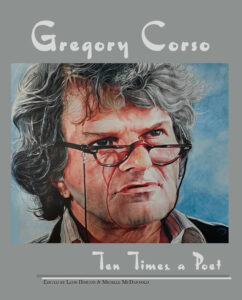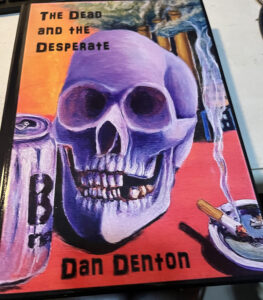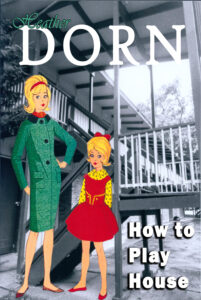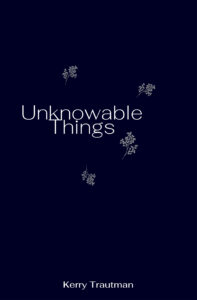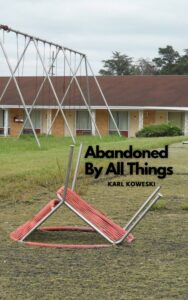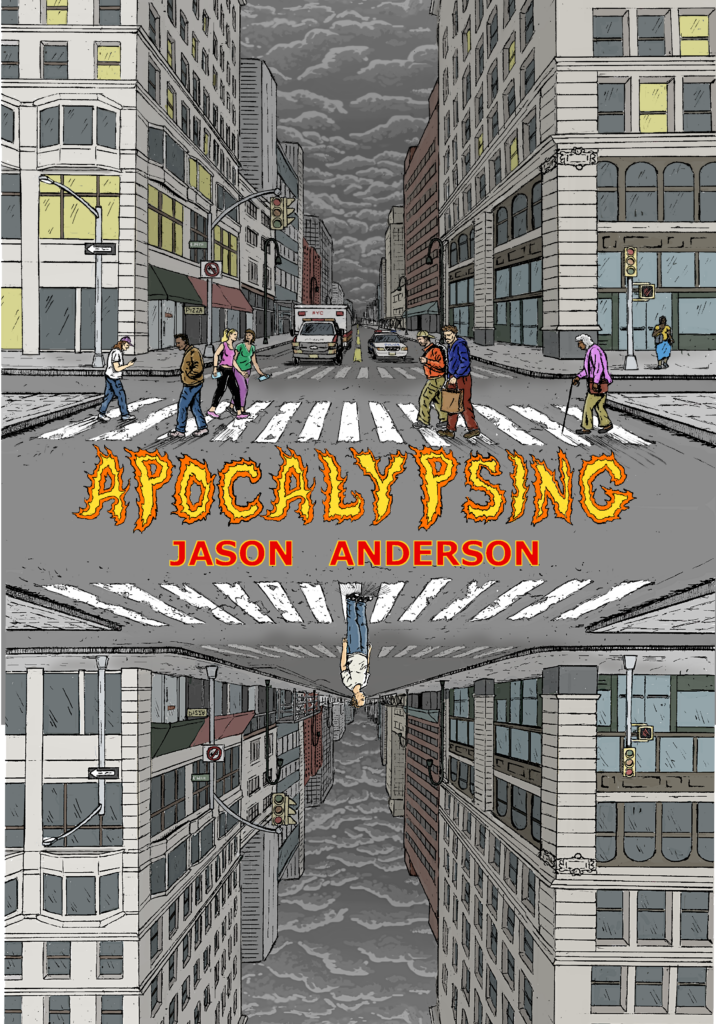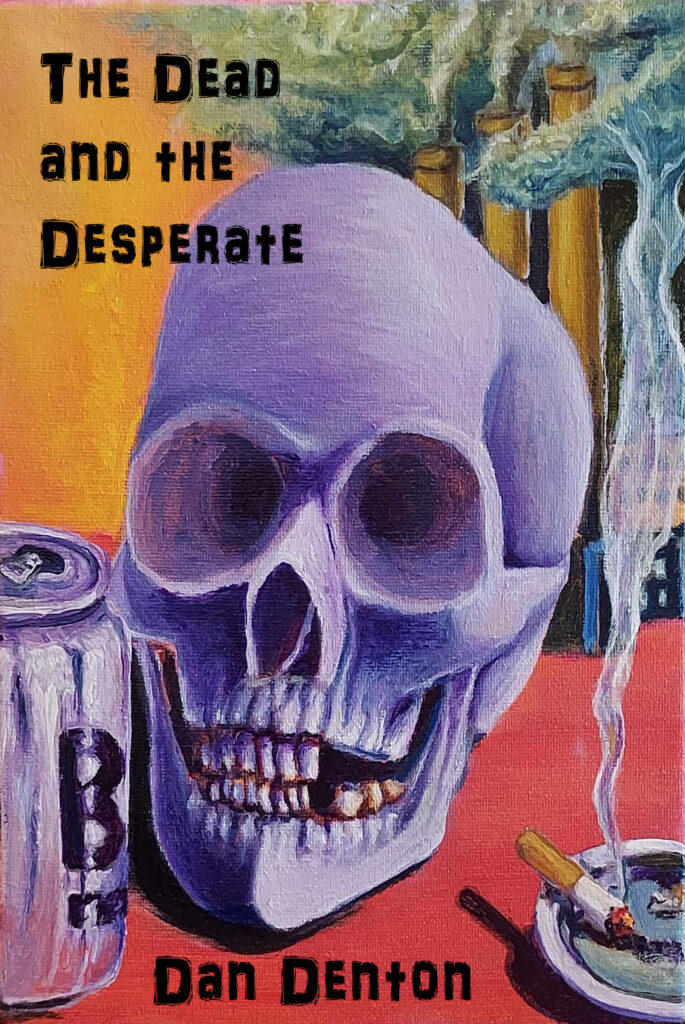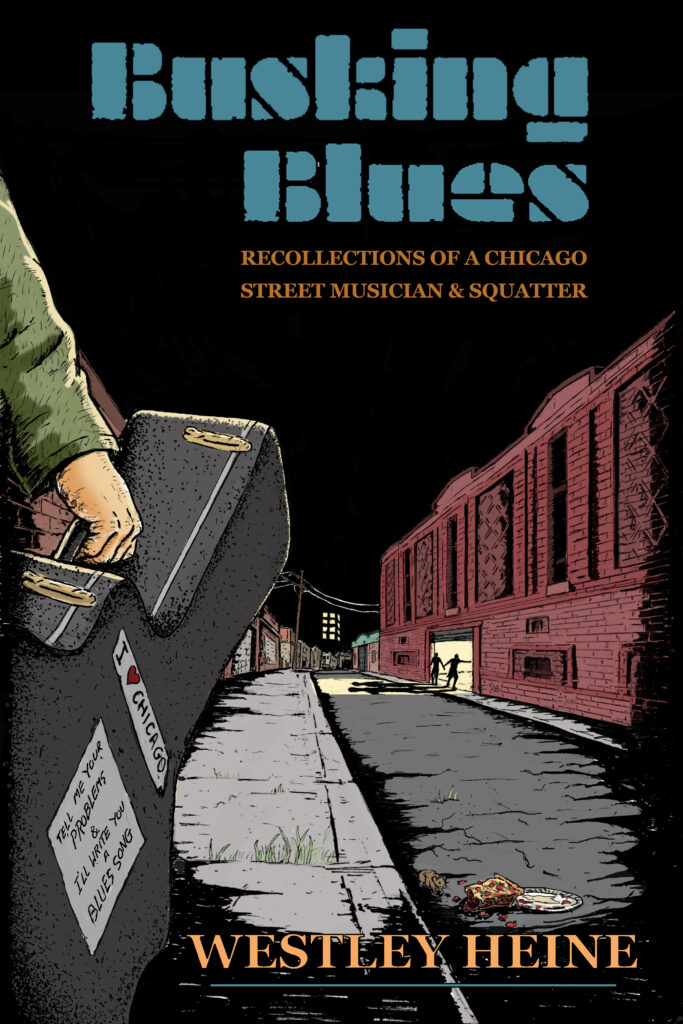Parallel Lives
Every city has one, a block God
forgot, some unofficial war zone,
demilitarized, but alive and active
with all the usual suspects cops roust
on periodic missions to clean up after
some particularly rowdy disturbance,
something so embarrassing, around
election day, even the mayor is moved
to act. After the votes have been counted,
results confirmed, the war goes on as before.
911 calls come in and cars are dispatched,
later rather than sooner, except, in cases
of extreme cruelty, events that make
front page news or, on occasion, CNN;
‘Fraternity hazing involved terrorist
techniques, pledges for unchartered
frat subjected to punishments, not unlike
water boarding, until they were forced
to beg for mercy.’
The cries from basement/ dungeon so loud,
so horrific, even cowed neighbors
could no longer endure the noise, could
only imagine what must be happening inside.
University officials assert they had
‘suspicions banned fraternity was still
accepting new members,’ as they had been,
banding and disbanding time and time
again, for fifty years, only the names
and faces changed.
Over time, the block is modified,
buildings burned out, abandoned,
strafed in territorial feuds, boarded up
or razed, salt sprinkled on the mounds left
behind, for sale signs riddled with bullet
holes, gang graffiti ornamented, relics
no one cares to recall or revisit.
All the former denizens, drug dealers,
and their whores moved on, occupying
new digs that soon resemble the old:
from Odell to Kelton, from Elberon to
Quail to Washington; forsaken places,
reclamation projects so far past due
only those with no future go there.
Time Has Come Today
“You don’t know what pain is.”
Buffalo Bill
Somewhere along the line,
someone had put him in a metal cell,
a kind of prefab hurt locker,
and forgot to let him out. Maybe,
pounded on the sides to like, rattle
his cage every now and then,
never letting any unnecessary light in,
no food, no water, no human contact,
nada for days, so that when the family
business, literally, went up in smoke,
a mobile home, meth lab, defoliation
death trap, only he would survive
the fast-burning fireball suffused with
strange colors, sick smells of chemicals
and bad meat, a black hole where
the concrete pad had been.
He’d feel no remorse for confederate
flag ensemble wearing dad, a former
weightlifting skinhead gone to fat,
not completely weaned yet from his
Rebel Yell and his emaciated, toothless
straw haired, unwashed, skank of a woman,
something like thirty-nine going on
seventy, maybe his mother, maybe not.
Where he was going time was measured
in scorched spoonful’s of street, ampoules
and syringes, black market product mined
from god’s black earth.
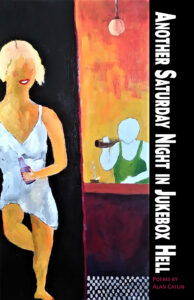
Another Saturday Night in Jukebox Hell by Alan Catlin is now available at https://www.magicaljeep.com/product/jukebox/162
The smartass bartender, narrator, is locked in a bar with thousands of uninvited guests. The jukebox is virtual which means it is practically infinite and people can and will play music Loud for hours while the hapless, somewhat hard of hearing bartender tries to make the best of this “disco inferno” ( though the music is rarely if ever remotely disco like). Our bartender refers to the jukebox as the infernal machine and the guests are demons with unlimited credit. Snarky, irreverent and based on actual firsthand experience.
Alan Catlin worked for the better part of 34 years in his unchosen profession as a barman in and around the greater Albany, NY area. He has published dozens of chapbooks and full-length books focusing on his work and the people he met while laboring in the trenches of bar warfare.
“Like a sequel to his previous collection of bar poems, Bar Guide for the Seriously Deranged, Alan Catlin’s new collection begins, appropriately, in Hell, among those condemned to short, sad, violent lives of pain, humiliation, and self-destruction. There are many doors to Hell, he confides. “The one you choose is always / the wrong one.” The whores, the drug addicts, the gang members, the “karaoke killers”: they’ve all walked in through different entrances but wound up in the same place. Fate? In “Maybe it was meant,” Catlin philosophizes: “to be, to end this way, / a life spent on the edge / always playing a loser’s / hand but pretending /otherwise, and fooling / no one.” Another Saturday Night in Jukebox Hell has moments of humor and scenes of poignance, all so familiar, all so human, all so doomed, all so damned. Belly up to the bar, have a seat. Drink it all in!”—Charles Rammelkamp, author of The Trapeze of Your Flesh
“This the kind of place the children and grandchildren of the Dead-End Kids would go. They’d call themselves something like the Wild Bunch or the Wrecking Crew and the bartender, good to his word, would be taking notes and writing it all down. If you see yourself in these poems, it’s your own fault.”—Elenora Fagan, poet, lyricist
“If hell opened up all its’ gates, gave every good citizens a couple of hundred bucks to spend at happy hour; they’d end up at this bar, super-charged and ready to go, making up for lost time.”—Patrick Allen, occasional poet
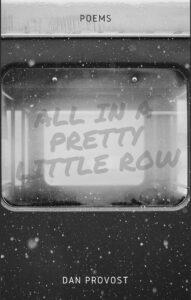 Dan Provost, All in a Pretty Little Row, Roadside Press, Magical Jeep Distribution, available on Amazon, 196 pages, 2023, $15
Dan Provost, All in a Pretty Little Row, Roadside Press, Magical Jeep Distribution, available on Amazon, 196 pages, 2023, $15
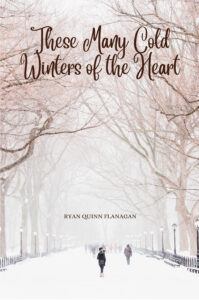 Ryan Quinn Flanagan’s These Many Cold Winters of the Heart begins with an epigraph from Emily Dickinson “I am out with lanterns looking for myself,” a perfect depiction of this collection. You will be riveted from the opening poem, “I Grew Up in a Brewery Town,” where the Molson plant closes down but “people survived, they usually do” although “everyone had to pay for their beer now/and they were drinking more than ever” to the powerful “wonderful bloody magic” in “The Butterfly Hunter” near the end. Flanagan has no shortage of acute observations on everything from a humorous pair of crows and the homelessness of tents in winter, to Bob Dylan and Lawrence of Arabia. A plentiful array of humorous, everyday usually irreverent pieces, also stunning moments of awe, and sometimes addressing tough subjects without flinching, from unexpected violence and death, to family mental illness, the loss of a brother, and the suicide of a childhood friend and an uncle and its after-effects. These latter poems will sneak up on you and take your breath away. Stylistically, Flanagan is firmly in control, breaking rules when he feels like it, sliding into a staccato surrealism, and dropping back into more traditional form when he swerves toward the profound. And he does that beautifully. A favorite poem “A Giant Bear Jumps Up the Rockface Outside Sudbury, Ontario,” begins “You never realize how helpless you would actually be/if the cards came calling.” I highly recommend These Many Cold Winters of the Heart and look forward to having the book in hand.—Susan Ward Mickelberry, author of And Blackberries Grew Wild
Ryan Quinn Flanagan’s These Many Cold Winters of the Heart begins with an epigraph from Emily Dickinson “I am out with lanterns looking for myself,” a perfect depiction of this collection. You will be riveted from the opening poem, “I Grew Up in a Brewery Town,” where the Molson plant closes down but “people survived, they usually do” although “everyone had to pay for their beer now/and they were drinking more than ever” to the powerful “wonderful bloody magic” in “The Butterfly Hunter” near the end. Flanagan has no shortage of acute observations on everything from a humorous pair of crows and the homelessness of tents in winter, to Bob Dylan and Lawrence of Arabia. A plentiful array of humorous, everyday usually irreverent pieces, also stunning moments of awe, and sometimes addressing tough subjects without flinching, from unexpected violence and death, to family mental illness, the loss of a brother, and the suicide of a childhood friend and an uncle and its after-effects. These latter poems will sneak up on you and take your breath away. Stylistically, Flanagan is firmly in control, breaking rules when he feels like it, sliding into a staccato surrealism, and dropping back into more traditional form when he swerves toward the profound. And he does that beautifully. A favorite poem “A Giant Bear Jumps Up the Rockface Outside Sudbury, Ontario,” begins “You never realize how helpless you would actually be/if the cards came calling.” I highly recommend These Many Cold Winters of the Heart and look forward to having the book in hand.—Susan Ward Mickelberry, author of And Blackberries Grew Wild